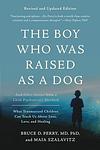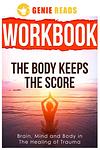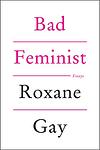The Greatest American "Nonfiction, Psychological" Books Since 1980
Click to learn how this list is calculated.
This list represents a comprehensive and trusted collection of the greatest books. Developed through a specialized algorithm, it brings together 290 'best of' book lists to form a definitive guide to the world's most acclaimed books. For those interested in how these books are chosen, additional details can be found on the rankings page.
Genres
The Psychological genre of books typically explores the inner workings of the human mind and emotions, often delving into complex and sometimes disturbing psychological states. These books may focus on mental illness, trauma, relationships, or personal growth, and often challenge readers to confront their own beliefs and perceptions. Psychological books may be suspenseful, thought-provoking, and emotionally intense, offering readers a deep and often unsettling glimpse into the human psyche.
Countries
Date Range
Reading Statistics
Click the button below to see how many of these books you've read!
Download
If you're interested in downloading this list as a CSV file for use in a spreadsheet application, you can easily do so by clicking the button below. Please note that to ensure a manageable file size and faster download, the CSV will include details for only the first 500 books.
Download-
1. How To Change Your Mind: What The New Science Of Psychedelics Teaches Us About Consciousness, Dying, Addiction, Depression, And Transcendence by Michael Pollan
In "How To Change Your Mind," Michael Pollan explores the history, science, and potential therapeutic uses of psychedelic drugs such as LSD and psilocybin. He interviews researchers, therapists, and individuals who have undergone psychedelic experiences, and shares his own personal experiences with these substances. Pollan argues that psychedelics have the potential to unlock new understandings of consciousness, spirituality, and mental health, and could offer new treatments for addiction, depression, and end-of-life anxiety. He also explores the cultural and political factors that led to the demonization and criminalization of these substances, and advocates for a reevaluation of their legal status in order to facilitate further research and exploration.
-
2. The Boy Who Was Raised As A Dog : And Other Stories From A Child Psychiatrist's Notebook by Bruce D. Perry, Danny Campbell, Maia Szalavita
This book delves into the complex world of child psychiatry through a series of poignant case studies, each shedding light on the impact of trauma on the developing brain. The narrative explores the remarkable resilience of children and the ability of the right therapeutic interventions to heal psychological wounds. Through the lens of a seasoned child psychiatrist, readers gain insights into the science of human experience, the importance of nurturing relationships, and the transformative power of empathy and understanding in overcoming the most harrowing childhood experiences.
-
3. Phantoms In The Brain by Vilayanur S. Ramachandran, Sandra Blakeslee
"Phantoms in the Brain" explores the intriguing world of neurology through the lens of patients experiencing bizarre neurological disorders. The book delves into the mysteries of the human brain, examining cases of phantom limb pain, delusions, and other cognitive anomalies. Through these case studies, the authors illustrate how these unusual conditions can shed light on the normal workings of the brain, revealing the complex mechanisms behind human perception, behavior, and the sense of self. The narrative combines scientific rigor with engaging storytelling, making profound insights into neuroscience accessible to a general audience.
-
4. The Body Keeps The Score by Bessel van der Kolk
This book delves into the complex effects of trauma on the mind and body, exploring how traumatic experiences can alter an individual's biology and brain chemistry, leading to lasting psychological and physical consequences. The author, a renowned expert in trauma, integrates clinical case studies with scientific research to demonstrate how trauma reshapes the brain's wiring, particularly areas dedicated to pleasure, engagement, control, and trust. The book also offers hope by presenting advances in treatment, including innovative therapies that help patients reclaim their lives, suggesting that recovery is possible through understanding the science of trauma, mindfulness, and reconnection with one's body.
-
5. Hunger by Roxane Gay
"Hunger" is a powerful memoir that delves into the complex relationship between the author's body and her experiences of trauma, shame, and self-worth. Roxane Gay fearlessly explores the physical and emotional implications of living in a world that often judges and marginalizes individuals based on their appearance. Through her raw and honest storytelling, she invites readers to confront their own biases and challenges societal norms, ultimately advocating for self-acceptance and compassion.
Reading Statistics
Click the button below to see how many of these books you've read!
Download
If you're interested in downloading this list as a CSV file for use in a spreadsheet application, you can easily do so by clicking the button below. Please note that to ensure a manageable file size and faster download, the CSV will include details for only the first 500 books.
Download



